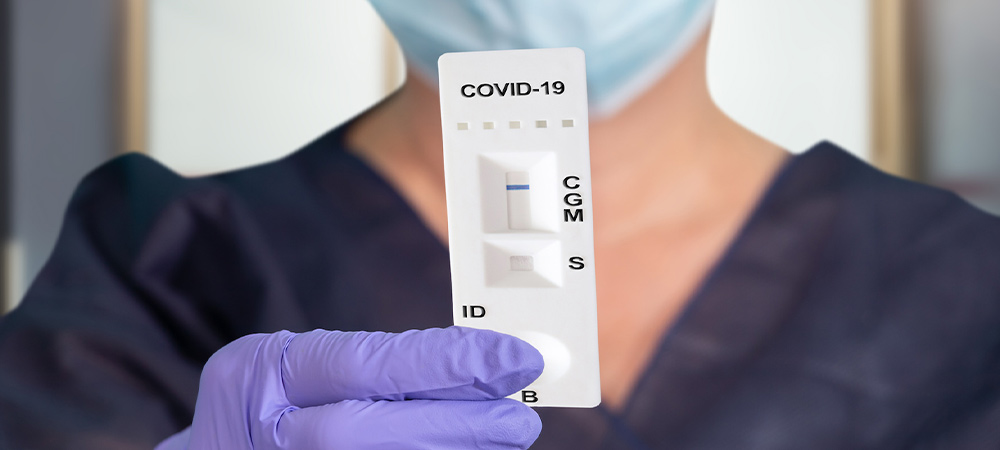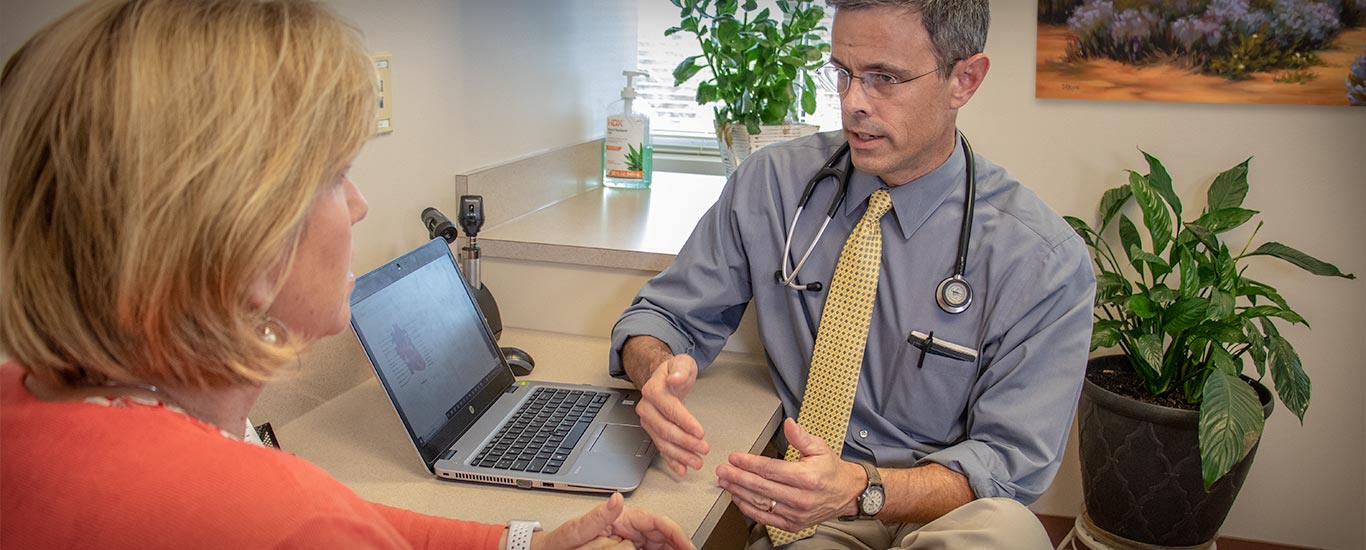
Antibody Testing For Coronavirus —
What You Need To Know
The past year has brought us a flurry of data around COVID-19 and an equal amount of unanswered questions. In an ongoing effort to get out the latest information available, Dr. Patrick O’Connell offers his input on the development of antibody testing for COVID-19 and what it can mean for fighting this virus.
COVID-19 Testing Methods
According to the FDA, there are currently two types of diagnostic tests for current infection – molecular (RT-PCR) tests that detect the virus’s genetic material and antigen tests that detect specific proteins on the surface of the virus. Samples are typically collected with a nasal or throat swab, or saliva collected by spitting into a tube.
To test for prior infection an antibody test would be used. Antibodies are made by the immune system in response to a threat, such as a specific virus. To conduct an antibody test for COVID-19, a health care professional takes a blood sample, usually by a finger prick or by drawing blood from a vein in your arm. The sample is then tested in a lab to determine whether a person has developed antibodies against the COVID-19 virus.
Antibodies can help fight infections and take several days to weeks to develop after you have an infection. They may stay in your blood for several months or longer after recovery.
Before the holidays, the turnaround times for COVID-19 diagnostic tests were slower as the demand grew. The diagnostic test was used to show if someone had an active coronavirus infection. If they tested positive for the diagnostic test, then they needed to take steps isolate themselves from others. Many people didn’t travel and spent the holidays alone to protect their older parents and loved ones.
What A Positive Antibody Test Means
In general, a positive antibody test is presumed to mean a person has been infected with SARS-CoV-2, the virus that causes COVID-19, at some point in the past. It does not mean they are currently infected as antibodies usually start developing within 1 to 3 weeks after infection.
Antibody test results should not be used to diagnose someone with an active infection.
According to the CDC, occasionally people may not develop detectable antibodies after coronavirus infection. In others, it’s possible that antibody levels could wane over time to levels that cannot even be detected.
How Antibody Testing Can Be Used
“I think antibody testing is going to be one of the more valuable pieces of getting a better handle on what’s happening from a population standpoint,” said Dr. O’Connell. “I think lots of people are getting infected with coronavirus that’s going unrecognized, not because somebody dropped the ball, but because they have either very mild illness or they are completely asymptomatic, therefore we have a skewed perspective of the severity of the virus.”
“What the antibody test offers the chance to do is begin to get that community wide view of things,” he added. “It gets us to a more meaningful understanding of how bad the virus is because if we have a better sense of what the true denominator is of how many people have gotten sick with it, then we know how many people have died from it and it gives a better clinical assessment.”
According to Dr. O’Connell, the possibility of asymptomatic infection or transmission is one of the most worrisome pieces of the puzzle. “The issue of asymptomatic infection and asymptomatic transmission it’s both reassuring and incredibly distressing at the same time,” he said. “The reassuring part is to say that many people who get infected will remain asymptomatic. The distressing part is that when you’re asymptomatic, you are not aware that you’re infected but you can still spread the virus.”
“It’s a scary issue for people to have to worry if they are carrying something even if they feel okay,” he said. “There is this distressing sense of uncertainty in terms of you giving it to others or others giving it to you, even when they look healthy.”
Being able to use antibody testing to determine if a person has already had the virus and has antibodies could potentially mean they are safe from others and also safe to not spread it.
Do Antibodies Provide Protection?
Having antibodies to the virus that causes COVID-19 might provide protection from getting infected with the virus again. If it does, it’s still unclear precisely how much protection the antibodies might provide or how long this protection might last. According to the CDC as of December, 2020, you should continue to protect yourself and others since you could get infected with the virus again.
Until there is more data on how much protection antibodies provide, everyone should continue to follow the CDC guidelines and take steps to protect themselves and others, including wearing a mask, staying at least 6 feet away from other people outside of their home, and washing hands, even if they have had a positive antibody test.


